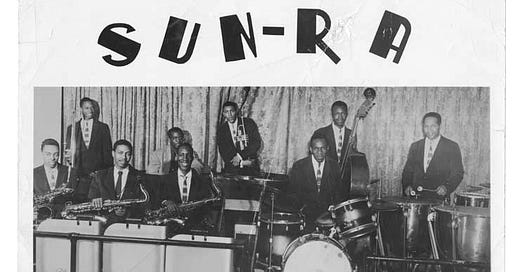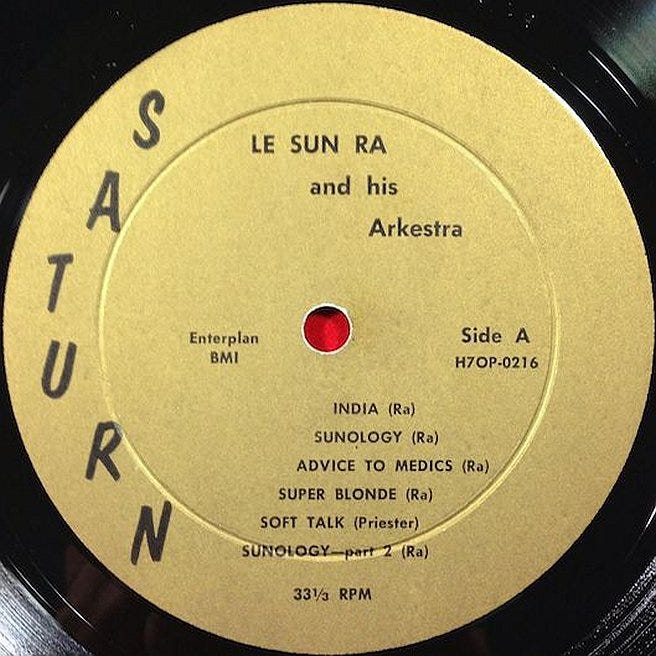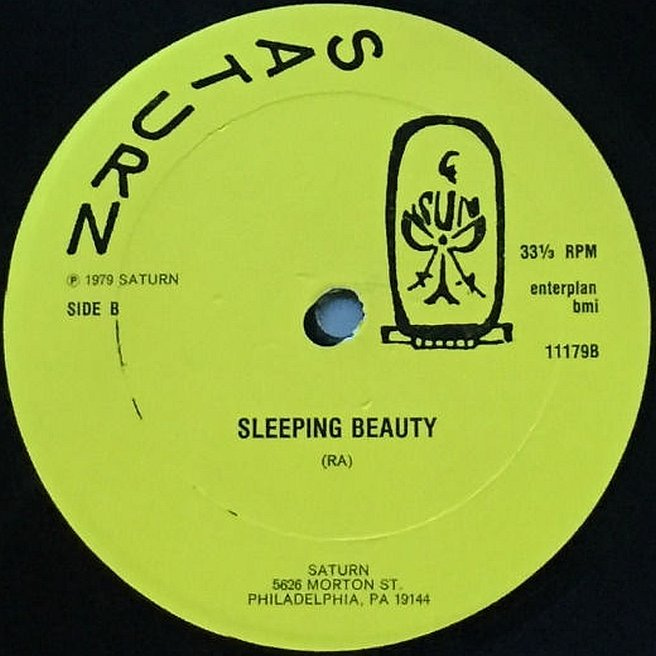But if you would tell me who I am, at least take the trouble
to discover what I have been.
- Ralph Ellison
In 1946, at the age of 32, Sun Ra left Birmingham, Alabama and traveled North in search of the “Promised Land”. After working in Nashville for a short time, he moved on and settled in Chicago. However, by 1951, instead of the Promised Land, he found himself struggling to survive in the sleazy underworld of gangsters, playing piano behind a curtain at white-only strip joints in Claumet City. In this light, Herman Blount changed his name and developed, within a musical context, his own exodus myth. For Sun Ra, music could be used to highlight an alternative form of history and become the gateway to another reality. He called his alternative: Astro Black Mythology.
Before you read on, take a two minutes to listen to this song:
I think this is how Sun Ra felt about his music. Speaking to his people during a time of racial segregation and oppression, he also asked, “Will my music do anything for you?”
Astro Black Mythology
As a form of escapism from the world around him, Sun Ra created for himself and black Americans a cosmic, mythical future and a mythical past. In this context, Astro Black Mythology emphasizes Sun Ra’s conscious creation of two mythic poles:
The Future: the Astro of outer space
The Past: the Black of ancient Egypt
Sun Ra felt that “Black people of America needed an awakening.” His Astro Black Mythology was the Light to “set his people free.” In his classic 1978 song, When There Is No Sun, Sun Ra proclaims:
The sky is a sea of darkness
When there is no sun
The sky is a sea of darkness
When there is no sun to light the way
There is no day
There's only darkness
Eternal sea of darkness
Sun Ra was offering a new alternative to the Judeo-Christian mythology: the mythic past of the Exodus story and the mythic future in God’s heaven. Sun Ra’s hostility toward Christianity is well documented. However, what is amazing to me is his extraordinary attack on Moses, who was seen by black culture as a uniquely significant figure in the Exodus story, which had such strong roots in the Black Liberation Movement narrative during the 1950s and 1960s.
Sun Ra claimed that the Old Testament stories of the Israelites had trapped black Americans in a false history that cut them off from their true historical legacy - the black civilization of ancient Egypt, which gave beauty and culture to the world.
Astro = Outer Space
Clearly, Sun Ra was fascinated with outer space. You need only look at LP titles from his discography: The Futuristic Sounds of Sun Ra (1961), Art Forms of Dimensions Tomorrow (1965), We Travel the Space Ways (1967), Space is the Place (1971), A Tonal View of Times Tomorrow (1974). I believe Sun Ra’s main goal was the complete re-visioning of the Christian mythic future with a new futuristic vision to be found in space. In his own worlds from the linear notes to his LP Sun Songs, he explains that the “real aim” of his music is “to co-ordinate the minds of people into an intelligent reach for a better world, and an intelligent approach to the living future.”
By the beginning of the 1960s, Sun Ra was expressing his music almost exclusively through the lens of space to create a new futuristic utopia or what he would later call the Celestial Road.
Black = Egypt
For the most part, I think Sun Ra’s many references to ancient Egypt were intended to raise awareness of real black historical achievements contrary to the history represented by white cultural and academic establishments. Sun Ra’s influence is perhaps best explained by Tyrone Hill and Marshall Allen in this portion of Graham Lock’s 1995 interview in Stride Magazine:
The importance of ancient Egypt’s blackness is attested to by current Arkestra members. Altoist Marshall Allen answers my queries with “Well, there are a lot of ancient Egyptians in America.” You mean black people? “That’s right. People from all over Africa are there. You gotta have some kind of identity.” And trombonist Tyrone Hill states it even more plainly: “Knowing about ancient Egypt makes me feel better as a person, ‘cause those were black people. Our race don’t know very much about ourselves. In America, education and the mass media tell you black people got nothing to offer, but we’ve done many beautiful things. Sun Ra made me aware of this.”
By revising history, Sun Ra was restoring black America to their rightful place in history and offering an alternative ideal, as June Tyson proclaims in Sun Ra’s song Somebody Else’s World:
Somebody else's idea of somebody else's world
Is not my idea of things as they are
Somebody else's idea of things to come
Need not be the only way
To vision the future
Sun Ra’s fascination with ancient Egypt is not only evident in his choice of names (Ra is the Egyptian sun god), but also in the later renaming of his record label, El Saturn as Thoth (after the ibis-headed Egyptian moon god).
It was with his friend Alton Abraham in 1957 that Sun Ra founded El Saturn Records as an independent, artist-owned record label in Chicago. El Saturn, sometimes shortened to just Saturn, as shown below, released Sun Ra’s recordings for over four decades, often in small numbers with handmade or paste-on labels and sleeves. Here’s an early version:
…and a later version:
Sun Ra’s Astro Black Mythology offered a new reality represented not in biblical terms but in science fiction terms. He was offering a signal to black Americans that in order to find spiritual rebirth and be “saved” they must not follow the old ways of the Christian church, rather acknowledge their great Egyptian past and embrace a new future by traveling to outer space.
In the end, Sun Ra’s Astro Black Mythology was, as Jeanne Lee sang in Archie Shepp’s song, Blasé: “This ain’t a hate thing. It’s a love thing.”
To close out this week’s journey, we find ourselves traveling with Sun Ra and his Arkestra at sunset on the river Nile:
Next week, we’ll just take a short journey through my Sun Ra record collection to celebrate arguably the greatest artist-owned, independent American record label.
If you like what you’ve been reading and hearing so far on our journey, please share my newsletter with others - just hit the “Share” button at the bottom of the page.
Also, find my playlist on Spotify: From Fred Astaire to Sun Ra.
Feel free to contact me at any time to talk shop. I welcome and encourage that….
Until then, keep on walking….






